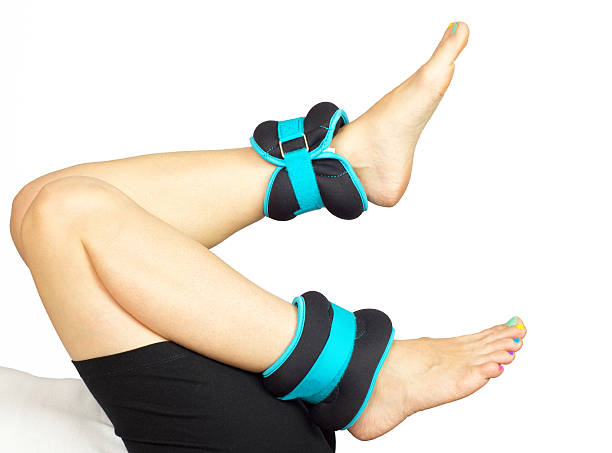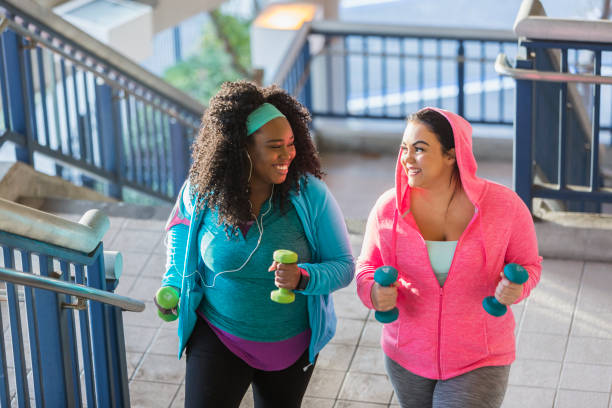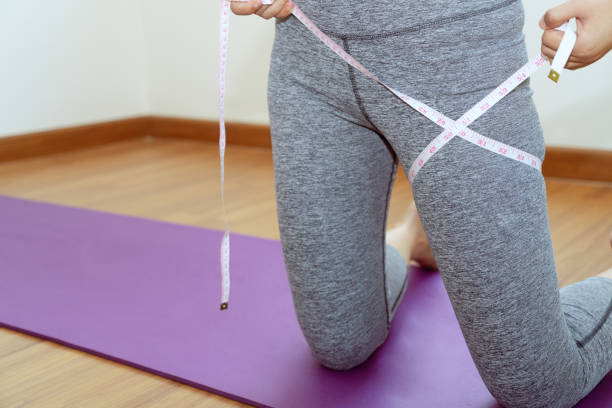There are many reasons why someone might want to improve their long-distance running abilities. They could be hoping to qualify for a marathon, or they simply want to run for longer periods without feeling worn out. Whatever the case may be, here are some suggestions for optimizing your long-distance running performance.
Good Running Form and Posture

The first step is to make sure you are running correctly. Make sure your posture is good, and you are landing on the ball of your foot rather than your heel. It would be best if you also tried to increase your speed gradually over time, rather than trying to go too fast too soon.
Training: Prepare to be a Long-distance Runner

If you’re preparing to run longer distances, structure your training properly. Too often, runners try to do too much too soon and get injured. The following tips will help you train safely and effectively.
Start Gradually
If you’re a beginner or training to be a long-distance runner for a half marathon, start by gradually adding mileage to your training schedule. Don’t increase your weekly mileage total by more than 10% each week. And never add more than 2 miles to a run on any given day.
Perform Other Workouts
Make sure you cross-train regularly. Strength training and other forms of exercise will help you maintain muscle mass and prevent injuries. Cycling and swimming are both great cross-training options for runners.
Take Time to Rest
Allow yourself plenty of rest time between runs. Recovery is essential for runners – especially long-distance runners.
Diet: What to Eat to Fuel Your Long Distance Running

Regarding long-distance running, what you put in your body is just as important as how often you train. Eating a healthy diet will help improve your performance and prevent injuries.
Avoid eating too many processed foods and sugary snacks, as they can cause stomach problems and weight gain. Instead, focus on eating whole foods that are packed with nutrients. By fueling your body with the right foods, you’ll be able to run farther and faster than ever before.
Eat Protein for Muscle Recovery
Marathon runners must focus on protein intake to recover muscles after a race. Protein helps rebuild and repair muscle tissue, which is essential for long-distance running.
A diet high in protein can also help runners maintain a healthy weight, provide energy, and improve performance, especially in a long-distance run. Some good protein sources include meat, poultry, fish, eggs, dairy products, legumes, and nuts.
Eat Carbs for Energy

When running long distances, your body needs enough energy to keep going. And that energy comes from the food you eat. Carbohydrates are one of the best energy sources for runners because they break down quickly into glucose, which provides a quick burst of energy.
So if you’re running a marathon or half marathon, include plenty of carbs in your diet in the days and weeks leading up to the race. You can find carbs in bread, pasta, fruits, and vegetables.
Eat Healthy Fats for Endurance
Running in a long-distance race requires endurance. Endurance running is a challenging sport that can take a toll on the body if not done correctly. Many runners make the mistake of not eating enough or the wrong foods, which can lead to fatigue and injuries.
It is important to eat healthy fats to fuel your body for endurance running. Fat provides energy and helps protect your muscles from damage. Some good sources of healthy fats include nuts, seeds, olive oil, and avocados.
Be sure to avoid unhealthy fats such as processed meats and sugary snacks. Eating a balanced diet with plenty of healthy fats will help you run longer and stronger.
Hydrate Before, During, and After Your Run Long Distances

Most runners know the importance of hydration, but many don’t know how to properly hydrate before, during, and after a run. When running long distances, it is important to ensure you are hydrating properly. If you are not well-hydrated, you can experience dehydration, leading to health problems such as heat stroke.
To prevent dehydration, drinking fluids before and during your run is important. It is also important to drink fluids after your run. Sports drinks are a good way to rehydrate after a run. They contain electrolytes, which help replenish the sodium and potassium lost in sweat.
Avoid Eating Heavy Foods before Running Long Distance
For runners, the pre-race meal is important. What you eat before a run can affect your performance. Eating too much or heavy foods can make you feel sluggish and slow during your run. You may also experience stomach cramps or nausea.
Eating a light meal or snack before running long distances is best to avoid these problems. Foods that are easy to digest, such as fruit or yogurt, are a good choice.
You may also want to drink plenty of fluids before your run. This will help keep you hydrated and minimize the chances of experiencing stomach cramps.
Recovery: How to Recover Properly from Long Distance Training

When you’re putting in long runs weekly, it’s important to make sure you’re recovering properly so you can continue to improve. Eccentric muscle contractions, which occur when the muscle lengthens as it contracts, are believed to be major contributors to muscle damage and soreness after running.
A recent study published in the Journal of Strength and Conditioning Research found that runners who took a supplement containing protease enzymes (enzymes that break down proteins) experienced less muscle damage and soreness after a 16-mile run than those who didn’t take the supplement.
Eat a Balanced Diet
To properly recover from running longer distances, you must eat a balanced diet. Eating the right foods will help your body rebuild muscle and refuel energy stores. It would be best if you aimed to eat plenty of protein, carbohydrates, and healthy fats.
Some good post-run foods include yogurt, eggs, whole grain toast, salmon, and berries. By eating a balanced diet, you’ll be able to recover quickly and feel ready to hit the pavement again soon!
Get Enough Rest
Many runners make the mistake of not allowing themselves enough time to recover after a long run. This can lead to fatigue and injury. To properly recover, it is recommended that you get at least eight hours of sleep per night.
Taking a day off after long-distance running can also help your body heal and refuel. Make sure you eat a balanced diet with plenty of protein and carbohydrates to rebuild your muscles. Stretching and foam rolling can also help promote healing.
Stretch Regularly
Like most runners, you probably think of stretching as something you do before and after a run to help avoid injury. It turns out, though, that static stretching—holding a stretch for 30 seconds or more—might not be the best way to achieve that goal. It can make you more susceptible to injuries in the long run.
A growing body of research suggests that dynamic stretching—a stretching where you move your muscles through their full range of motion—is a better way to prepare for a run.
Ice Sore Muscles
Undoubtedly, running is one of the best exercises for your body. It’s a great way to improve cardiovascular health, increase strength and endurance, and lose weight. However, running can also lead to sore muscles like any other strenuous activity.
If you’re new to running or you’ve been doing it consistently for a while, you’re probably familiar with the feeling of soreness in your legs after long-distance running. Fortunately, there are ways to help reduce muscle soreness and speed up recovery.
Ice is one of the oldest and most natural ways to reduce inflammation and pain. When used after a long or hard run, it can help speed up the recovery process. Applying ice to sore muscles helps constrict the blood vessels, which reduces swelling and inflammation.
It can also numb the area, providing relief from any pain. Ice packs or cold compresses should be applied for fifteen to twenty minutes at a time and can be repeated every few hours as needed.
Take a Hot Bath or Shower
If you’re like most runners, the end of a long run is just the beginning of your recovery process. You know you need to eat and drink, but what about something to ease your tired muscles? A hot bath or shower may be the answer.
Studies have shown that taking a hot bath or shower can help improve recovery after a long run. One study found that runners who took a hot bath recovered more quickly than those who didn’t and had less muscle soreness. Another study found that hot baths helped reduce inflammation after a hard workout.
Soaking in a hot tub or a hot shower is an easy way to help your body recover from long-distance running. It’s also relaxing, which is a bonus!
Gears to Get Better at Long Distance Running
Don’t let the long distances intimidate you. With the right gear, you can increase your endurance and make the most of your running experience. Here are some essentials to get you started.
Running Shoe
Running shoes are key to preventing injuries while running. Select a pair of shoes designed for your foot type that offer good arch support. You’ll also want to consider the climate, as different materials are better suited for hot or cold weather conditions.
Apparel
A comfortable sports bra is important for women who want to run long distances. Look for one that offers good support and isn’t too tight or restrictive. You’ll also want to choose shorts or pants that fit well and won’t ride up or chafe as you run.
Build Mental Endurance: Tips for Improving your Mental Strength
Running long distances can be a mental and physical challenge. If you want to improve your performance, here are some tips to help you build mental toughness:
- Set realistic goals and focus on your progress, not your results.
- Visualize yourself completing the race and achieving your goal.
- Stay positive and focused on what you can control.
- Stay hydrated and fueled throughout the race.
- Deal with any negative thoughts or emotions immediately.
- Celebrate your accomplishments, even the small ones!
Motivation to Get Better at Long Distance Running
There are plenty of reasons to run a marathon. Maybe you want to set a personal best time or raise money for a good cause. But if you’re looking to improve your long-distance running performance, one key motivator trumps them all: competition.
When you race against someone else, your brain is hardwired to find another gear. Suddenly you’re able to push yourself further than you ever thought possible. And the best part? You don’t even have to be in top shape to experience this boost in performance – all you need is someone to race against.
So if you’re looking for a motivation boost, find a race near you and start training. The competition will help take your running to the next level.





